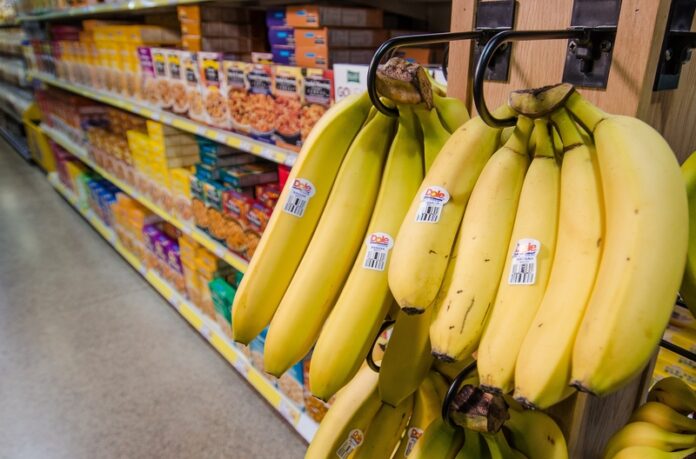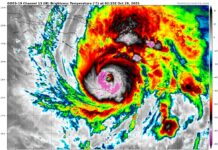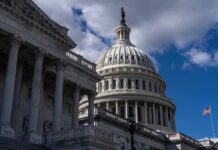
(States Newsroom) — A coalition of Democratic state officials sued the Trump administration Tuesday, asking a federal judge to force the release of food assistance funds for 42 million people that the U.S. Department of Agriculture has said cannot be paid during the ongoing government shutdown.
Attorneys general representing 22 states and the District of Columbia and three governors launched the suit days before benefits are expected to be cut off for low-income Americans enrolled in the USDA’s Supplemental Nutrition Assistance Program, or SNAP, on Nov. 1.
Despite holding $6 billion in a reserve fund, USDA said last week it would not process November SNAP benefits without fiscal 2026 funding approved by Congress.
The USDA’s refusal to provide November benefits runs contrary to precedent from other recent shutdowns, and even the department’s own Sept. 30 contingency plan that said the contingency fund would be used to continue benefits through the shutdown.
The administration has also shuffled some other money to provide funding for certain programs, but not SNAP.
The Democratic officials said those factors made the decision arbitrary and capricious, a violation of federal administrative law, and asked a federal court in Massachusetts to order the USDA’s move unlawful and block the administration from putting it in place.
“It is an abuse of discretion for Defendants to decline to use available appropriations, including the SNAP contingency reserve, to fund benefits for the mandatory SNAP entitlement program,” they wrote.
SNAP benefits typically cost the federal government about $9 billion per month, meaning the contingency fund could cover about two-thirds of November’s benefits.
The department could cover a full month by dipping into another USDA nutrition assistance program that holds about $23 billion, the state officials said. Part of that fund was used to cover a shortfall in the Special Supplemental Nutrition Program for Women, Infants and Children earlier this month.
The attorneys general of Massachusetts, California, Arizona, Minnesota, Connecticut, Colorado, Delaware, the District of Columbia, Hawaii, Illinois, Maine, Maryland, Michigan, Nevada, New Jersey, New Mexico, New York, North Carolina, Oregon, Rhode Island, Vermont, Washington state and Wisconsin brought the suit, along with Democratic Govs. Laura Kelly of Kansas, Andy Beshear of Kentucky and Josh Shapiro of Pennsylvania.
Shutdown politics
In an emailed statement, a USDA spokesperson did not address the lawsuit, which came from state officials, and instead blamed the shutdown on U.S. Senate Democrats.
“We are approaching an inflection point for Senate Democrats,” the spokesperson wrote. “Continue to hold out for the Far-Left wing of the party or reopen the government so mothers, babies, and the most vulnerable among us can receive timely WIC and SNAP allotments.”
SNAP, which the federal government funds and states administer, is one of the high-profile programs affected by the government shutdown that began Oct. 1 when Congress failed to appropriate funds for the fiscal year that began that date.
Congressional Republicans have tried to pass a stopgap measure to reopen the government, but Democrats have successfully blocked that bill as they demand Congress address the expiration of health care premiums for coverage through the Affordable Care Act marketplace.
In a Tuesday afternoon letter, 19 Republican attorneys general called on Senate Minority Leader Chuck Schumer to support the Republican stopgap to prevent an interruption to SNAP benefits.
The letter, led by Ohio Attorney General Dave Yost, called SNAP “one of the simplest and most effective ways to prevent hunger in America.”
“You have the power to prevent a crisis that is entirely avoidable,” the letter said. “A clean resolution is not a political concession; it is the responsible thing to do. … Refusing to do so now is not leadership; it’s leverage at the expense of the most vulnerable.
In addition to Yost, the letter was signed by the attorneys general of Alabama, Arkansas, Florida, Georgia, Kansas, Kentucky, Louisiana, Missouri, Mississippi, Nebraska, North Dakota, Oklahoma, South Carolina, South Dakota, Texas, Utah, Virginia and West Virginia.
Benefits delayed already in some states
Because of processing times required to add money to SNAP recipients electronic benefit transfer, or EBT, cards, benefits for November may already be delayed in some states.
The suit says California’s EBT vendor, the private company contracted to load monthly benefits onto individuals’ EBT cards, requires about a week to process those transfers.
“So, in order to ensure recipients received their November 2025 benefits on time, California would have had to send its issuance files to its vendor by October 23, 2025,” the suit said. “Each day after October 23 that California does not send its issuance files to its vendor will result in November benefits being delayed another day.”
Additionally, because most states use one of two EBT vendors, there’s a strong possibility the vendors will be overwhelmed by the workload “from all their client-states at essentially the same time” once benefits are unfrozen, the state officials said.
So even if USDA immediately released funding, there would be a lag before they appeared on EBT cards, they said.






